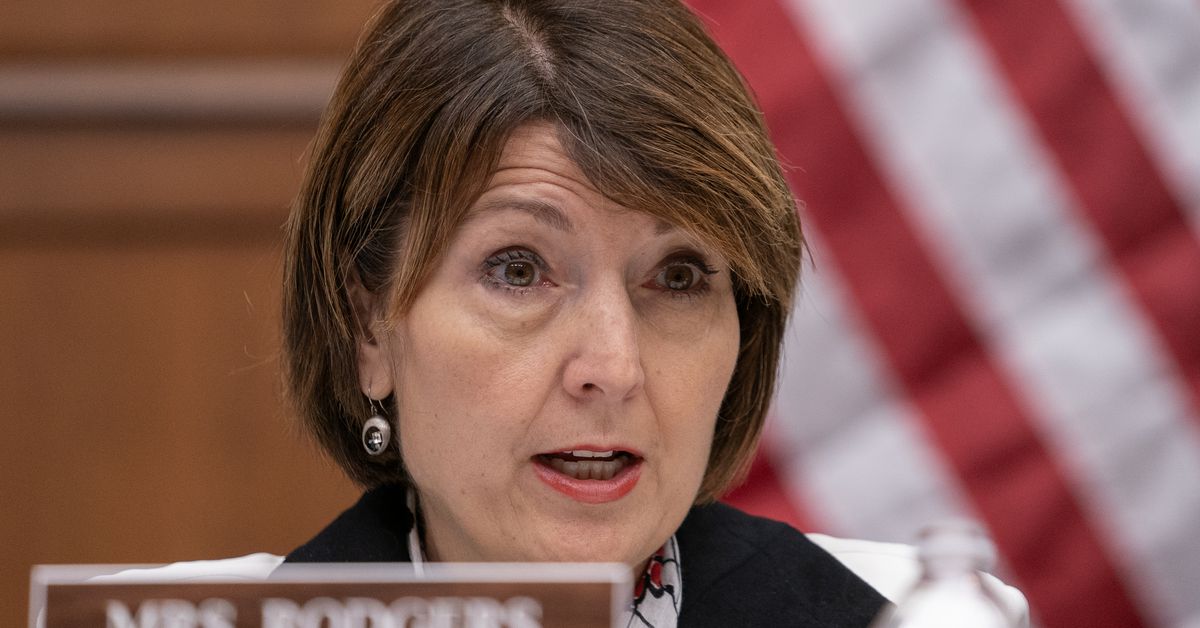/cdn.vox-cdn.com/uploads/chorus_asset/file/25508680/1695203108.jpg)
The House Energy and Commerce Committee suddenly canceled a markup to discuss and vote on 11 bills, including the American Privacy Rights Act (APRA) and the Kids Online Safety Act (KOSA).
The committee did not provide a reason for the cancellation in its online notice, and committee members appeared surprised by the change, according to reporters in the room. But disagreements on the bill with Republican House leadership seemed to play a role, according to recent reporting and the top Democrats on the committee. Some Republican House members have recently expressed concerns with the bill, Politico reported last week, adding that House Majority Leader Steve Scalise’s (R-LA) top aide said an earlier version of APRA wouldn’t get a floor vote in its current form, even if it passed out of the committee.
If the markup had happened as planned, the bill’s future already looked more uncertain than it did a few months ago. The most recent version of APRA released last week was met with resounding pushback from groups ranging from civil rights organizations to industry players.
In a statement after the scheduling change was announced, E&C Chair Cathy McMorris Rodgers (R-WA) posted a statement on X that did not directly address the cancellation. “For every parent, for individual liberty, and for the future of this country, we will continue our pursuit to give Americans privacy rights online,” Rodgers said. Speaking with reporters on Capitol Hill, she said, “This is not how the House is supposed to operate. It’s not how this place is supposed to work.” She added that the committee had the votes for the bill at the beginning of the week, but “there was a lot of input by leadership, specifically a couple of offices, that we just need to give it some time.”
But Ranking Member Frank Pallone (D-NJ) placed the blame squarely on Republican leadership for getting in the way of the markup. “It’s outrageous that Republican Leadership would interfere with the Committee’s bipartisan regular order process,” Pallone said in a statement. “I commend Chair Rodgers for her dedication to giving Americans back control of their data.” He said he remains committed to working with Rodgers on privacy and added that “we’re not giving up. The Energy and Commerce Committee is the only Committee that has had the willingness to take on Big Tech on behalf of the American people.”
Rep. Jan Schakowsky (D-IL), who co-sponsored APRA alongside Pallone, Rodgers, and Gus Bilirakis (R-FL), said in a statement that she was “furious that Republican Leadership did the bidding of Big Tech and special interests” by derailing the markup. “The American Privacy Rights Act provides foundational data privacy rights for consumers. It is unacceptable to make American families wait any longer.
Scalise told The Hill on Wednesday that there had been “a lot of concerns expressed about different parts of the bill,” including around private rights of actions that would let individuals pursue lawsuits over alleged privacy violations. In a statement on X Thursday, House Speaker Mike Johnson (R-LA) wrote, “It is time for Americans to have greater control over their privacy online, especially for the safety of our children. I am committed to working to build consensus in the House on a data privacy bill.” According to CNBC, Johnson recently told Rodgers and other Republican members he wants a privacy bill but that APRA came with too many concerns.
The cancellation puts a damper on hopes for national privacy rights, which just a few months ago received a surprising revival when Rodgers and Senate Commerce Committee Chair Maria Cantwell (D-WA) unveiled the APRA draft. The pair had quietly worked on the legislation after an earlier compromise bill, the American Data Privacy and Protection Act (ADPPA) stalled without Cantwell’s support.
While APRA received a mostly welcome reception from its initial debut, a recently revised version of the bill unleashed a wave of blowback from groups with a range of political interests. Earlier this week, more than 50 civil society groups sent a letter to committee leaders, urging them to postpone the markup to restore civil rights and algorithm auditing provisions to the latest version. “If the civil rights provisions are not restored, the bill should not advance,” wrote the groups, which included the Leadership Conference on Civil and Human Rights, the Lawyers’ Committee for Civil Rights Under Law, and the American Civil Liberties Union.
Tech industry groups also opposed the latest version of the bill. Carl Holshouser, executive vice president of TechNet, which represents companies including Apple, Google, Meta, and OpenAI, told committee leaders that APRA could “undermine America’s global competitiveness or leadership in emerging technologies.” Holshouser added that it could penalize companies “for merely attempting to personalize the online experience for consumers or striving to improve and develop new products and services.” TechNet said the bill did not do enough to preempt state laws or prevent excessive lawsuits from individual consumers.
Chris Mohr, president of the Software & Information Industry Association (SIIA), which represents the specialized information industry, praised the removal of “Provisions on civil rights and covered algorithms,” in the latest version but noted remaining “significant issues.” Those include overly broad definitions of sensitive data covered by the protections and limits on contextual advertising, according to Mohr. “The need to get federal privacy legislation right — not just passed quickly — is critical,” he said in a statement. “Legislators should keep working to ensure a safe online experience that is regulated responsibly.”
It appears those groups will now get their wish.
Services Marketplace – Listings, Bookings & Reviews
